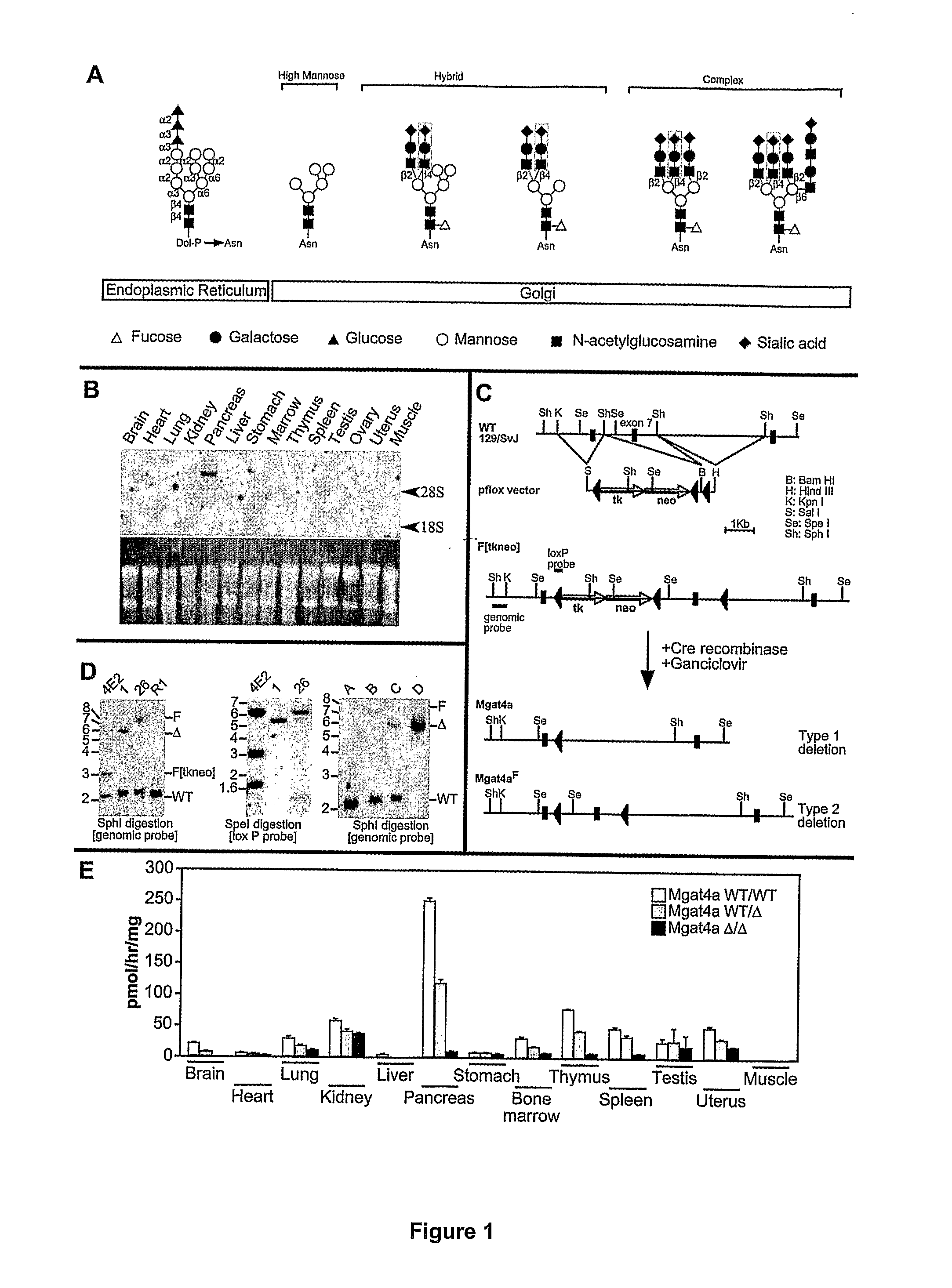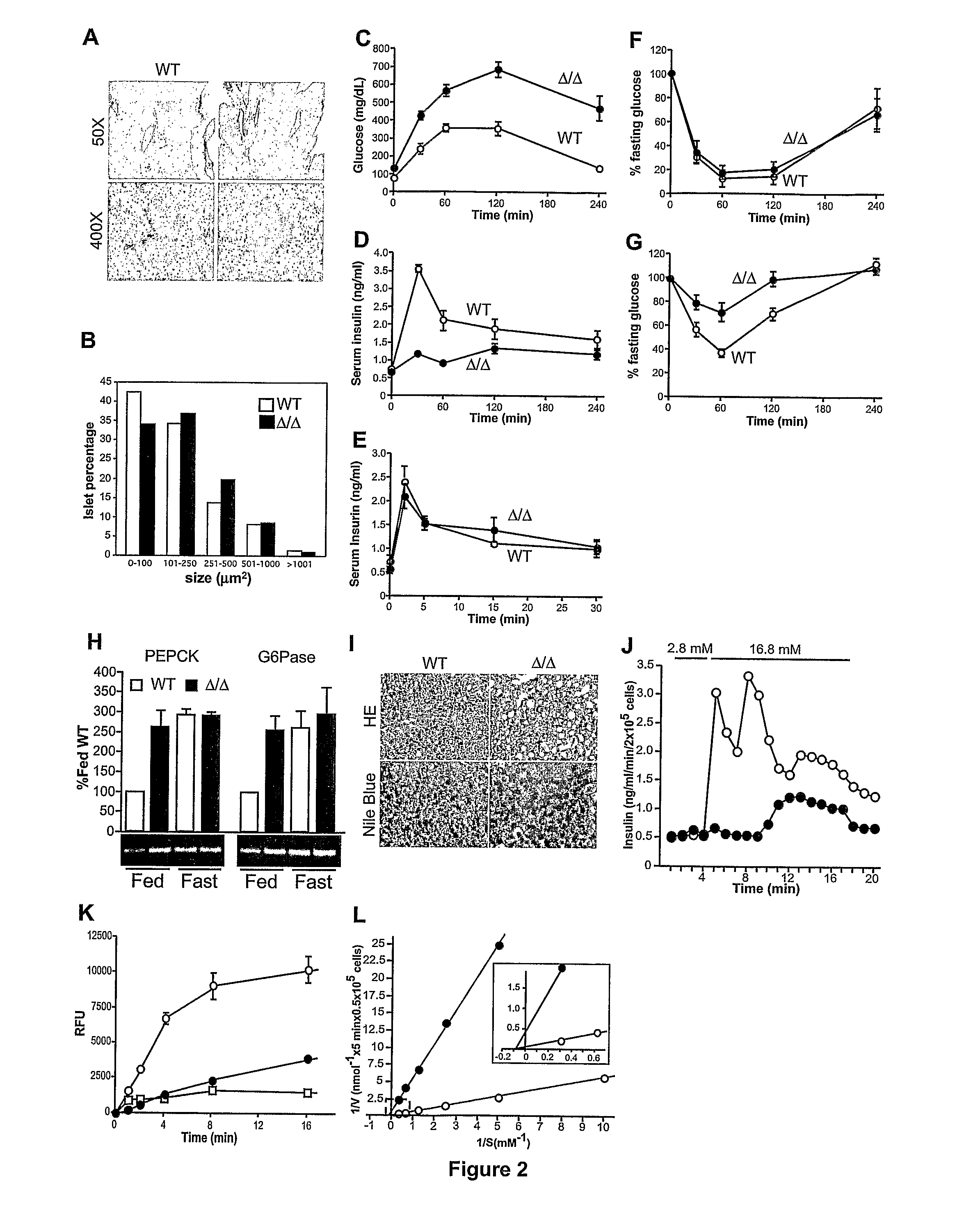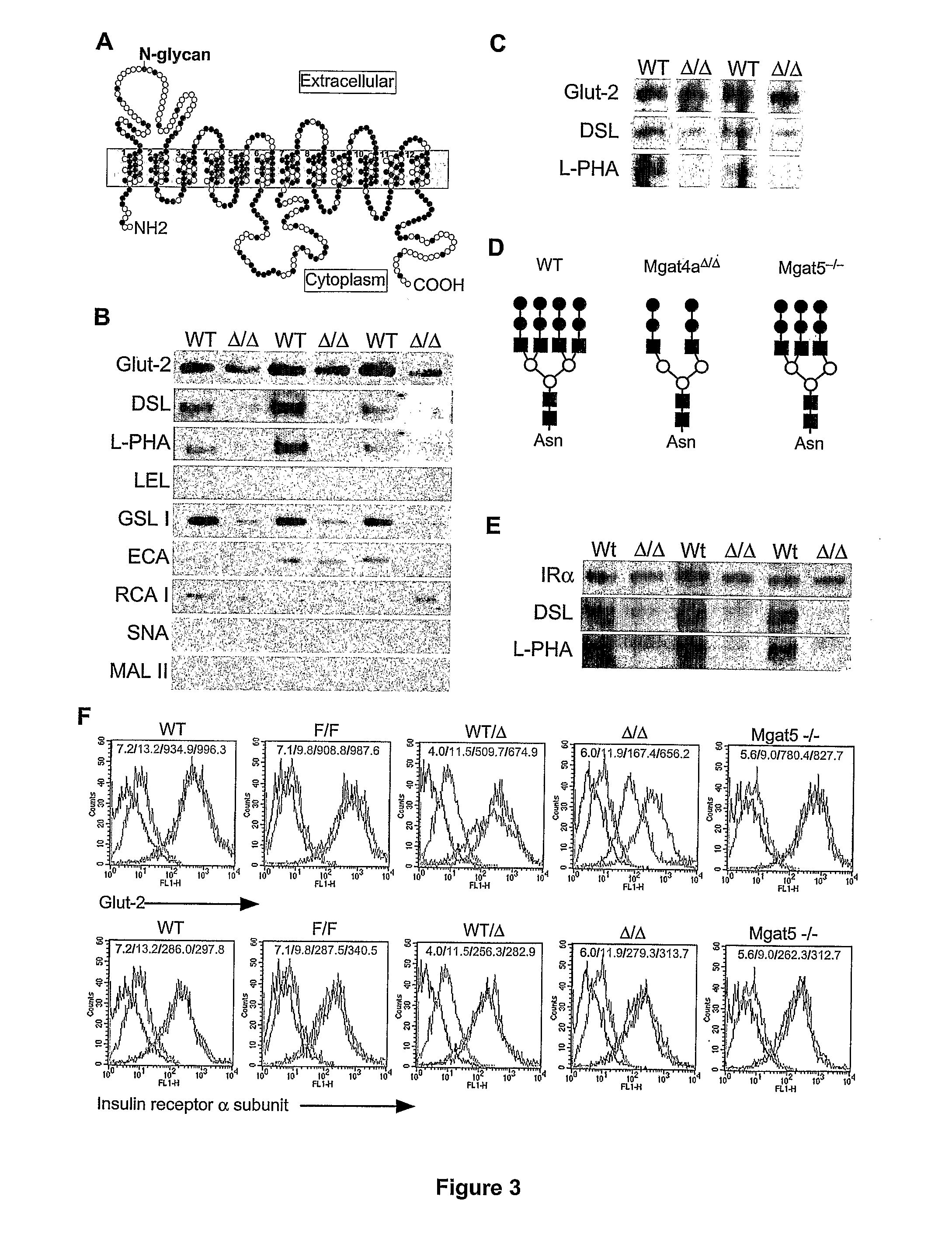Regulation of glucose and insulin levels by GnT-4 glycosyltransferase activity
a glycosyltransferase and glucose technology, applied in the field of glucose and insulin levels regulation by gnt4 glycosyltransferase activity, can solve the problems of chronic hyperglycemia, deficiency of insulin secretion, diabetes and associated pathologic syndromes, etc., to increase glut n-glycosylation, increase glut binding to lectin, and increase glut stability
- Summary
- Abstract
- Description
- Claims
- Application Information
AI Technical Summary
Benefits of technology
Problems solved by technology
Method used
Image
Examples
example 1
Mutagenesis of the Mgat4a Gene Encoding the GnT-4a Glycosyltransferase
[0171]Specifically eliminating GnT-4a activity in vivo began by inactivation of the Mgat4a gene in mouse embryonic stem cells using Cre-loxP mutagenesis (FIG. 1C). Exon 7 was flanked by loxP sites (F, floxed) placed in surrounding introilic sequences and this modification was targeted into embryonic stem cells that were subsequently used to produce mice heterozygous for the Mgat4aF allele (FIG. 1D). These were bred with mates expressing Cre recombinase in developing oocytes (Shafi et al., 2001) to produce offspring heterozygous and homozygous for the deleted (Δ) Mgat4aΔ allele lacking exon 7 (FIG. 1D). Deletion of exon 7 disrupts the catalytic domain of GnT-4a and results in a frameshift followed closely by a translational termination signal in any residual Mgat4a RNA molecules produced. Mutant allele segregation among offspring was normal and animals lacked gross physical, neurological, or reproductive defects. G...
example 2
GnT-4a Deficiency Impairs Glucose Transport and Insulin Secretion in Causing a Syndrome Similar to Human Adult-Onset Type 2 Diabetes
[0172]Blood chemistry parameters were abnormal in 8-12 week old GnT-4a deficient mice fed ad lib with standard chow (Table 1). Serum glucose levels reached pre-diabetic and diabetic concentrations. Free fatty acid and triglyceride levels were also significantly elevated while serum insulin averaged only 40% of normal. These abnormalities increased in severity as animals reached one year of age and serological evidence of liver damage appeared during this time (Table 1). Although only a minor percentage of GnT-4a deficient mice became obese, by 6-8 months of age they averaged 20% above the body weight of wild-type littermates. Upon being fed a high fat diet for 8 weeks ad lib, elevated glucose levels were present in both wild-type and GnT-4a deficient mice, with GnT-4a deficiency resulting in a more severe increase (Table 1). On the high-fat diet, the av...
example 3
GnT-4a Selectively Promotes Pancreatic Glucose Transporter-2 Abundance and Cell Surface Expression
[0175]Glucose transporter-2 (Glut-2) is important for glucose uptake and insulin secretion in pancreatic beta cells. Glut-2 structure is highly conserved between avian, rodent, and primate genomes, including the retention of a single N-glycosylation site in the first extracellular loop (FIG. 3A). A significant reduction in Glut-2 protein levels was observed in GnT-4a deficient islet cells averaging 50% of normal. This was associated with a reduction in DSL lectin binding to remaining Glut-2 reflecting the absence of the N-glycan branch formed in the presence of Golgi GnT4 activity (FIG. 3B). Unexpectedly, a separate N-glycan branch contributed by Golgi GnT5 activity and visualized by L-PHA lectin binding was also deficient from the Glut-2 N-glycan produced by Mgat4a null islets (FIG. 3B). We therefore analyzed Glut-2 abundance and structure among Mgat5 null mice lacking GnT-5 activity. ...
PUM
| Property | Measurement | Unit |
|---|---|---|
| Tm | aaaaa | aaaaa |
| temperature | aaaaa | aaaaa |
| temperature | aaaaa | aaaaa |
Abstract
Description
Claims
Application Information
 Login to View More
Login to View More - R&D
- Intellectual Property
- Life Sciences
- Materials
- Tech Scout
- Unparalleled Data Quality
- Higher Quality Content
- 60% Fewer Hallucinations
Browse by: Latest US Patents, China's latest patents, Technical Efficacy Thesaurus, Application Domain, Technology Topic, Popular Technical Reports.
© 2025 PatSnap. All rights reserved.Legal|Privacy policy|Modern Slavery Act Transparency Statement|Sitemap|About US| Contact US: help@patsnap.com



